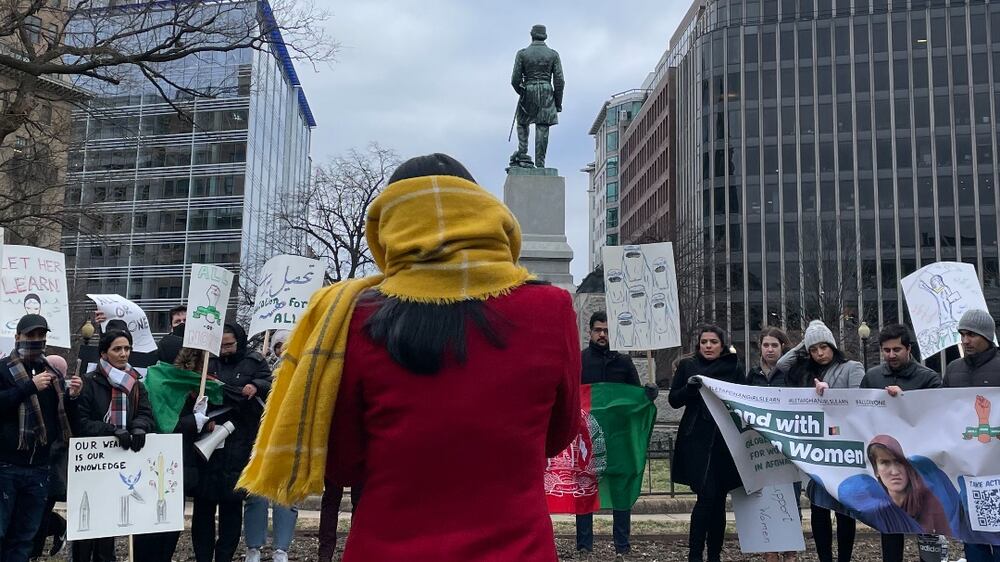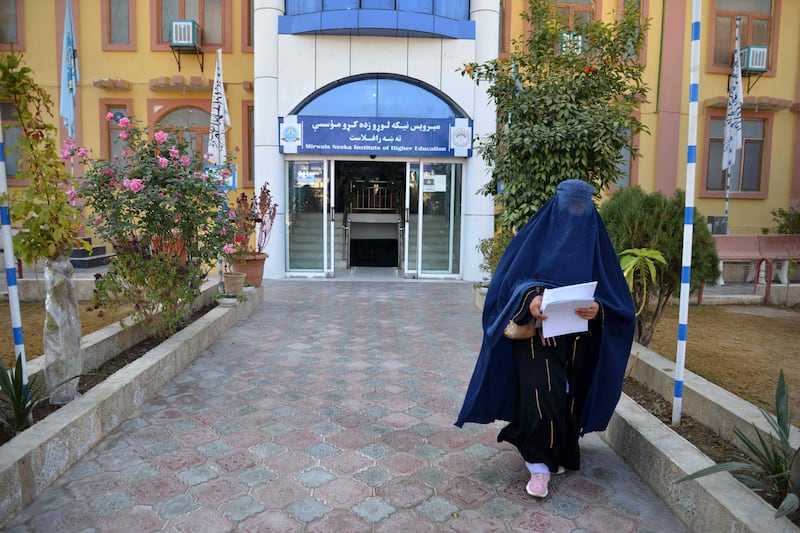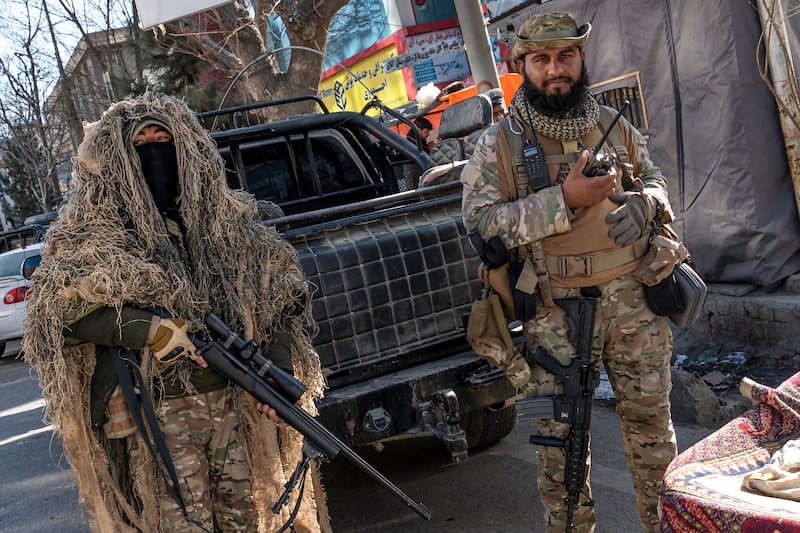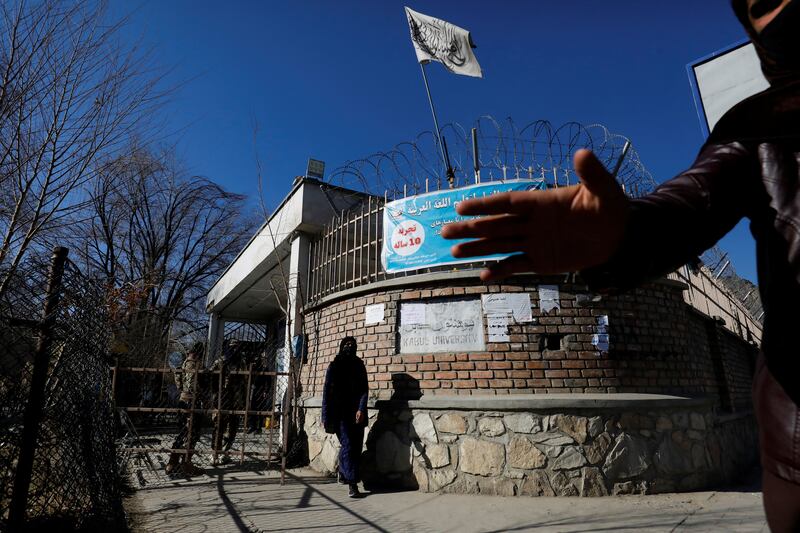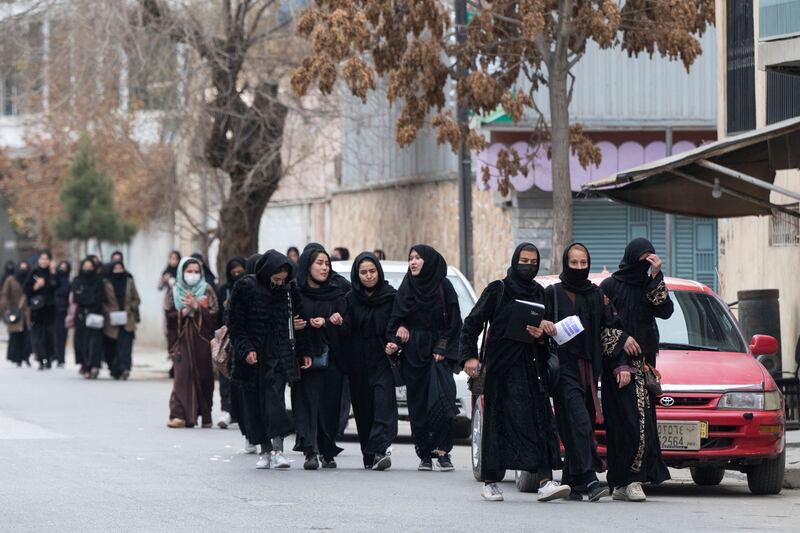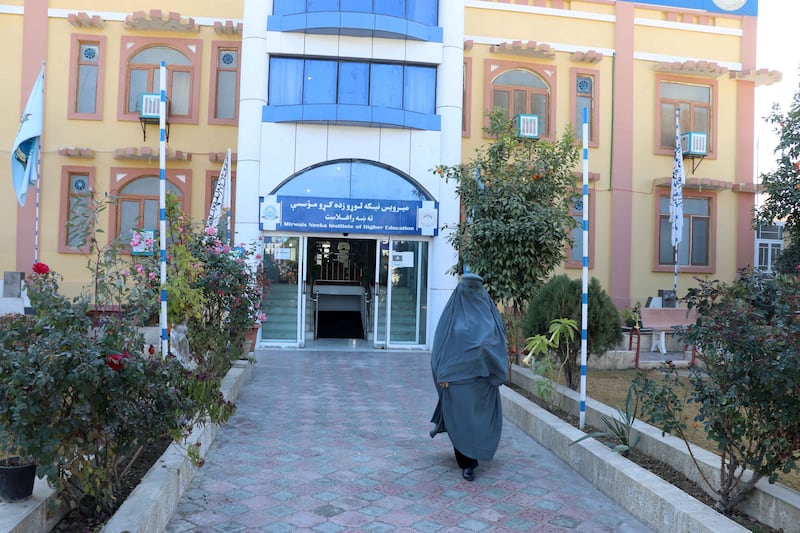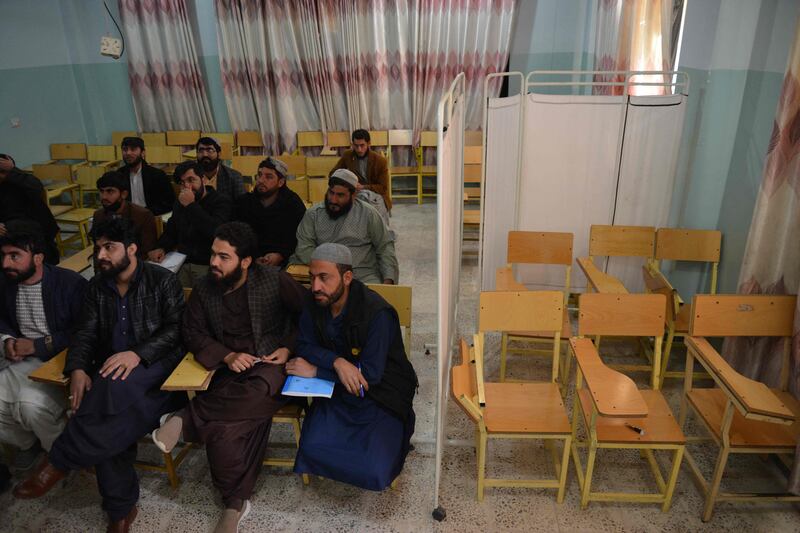Demonstrators in 54 cities in 23 countries took to the streets on Saturday to protest against the Taliban's decision to ban women from attending universities in Afghanistan.
From Dublin to Athens and Beirut, demonstrators declared that Afghan women deserve their fundamental human rights.
The Taliban continued its crackdown on women's rights in Afghanistan last month when it issued a ban on women attending university, followed days later by a ban on women working for foreign NGOs.
Representatives of the hardline group cited the way female students dressed as one of the reasons for the decision, as well as a desire to prevent mixing of genders and concerns about the subjects being taught.
Afghan women were almost immediately turned away from university gates, sparking women-led protests and international condemnation.
Protesters in Washington braved frigid winter weather on Saturday to show solidarity with Afghan women, rallying just blocks away from the White House.
Afghan women and men were among dozens of people chanting “down with the Taliban”, “let her learn” and “women's rights are human rights”.
Lead organiser Nahid Popal, an Afghan-American who graduated from the American University of Afghanistan in Kabul, described how over the past two decades she had lost friends, family and professors to Taliban violence.
She spoke fiercely about the need for the international community to reject the Taliban and uplift Afghan women, but became tearful when asked to describe what the university ban felt like as an Afghan-American woman.
“This fight is a personal fight,” Ms Popal told The National.
“My school was bombed by the Taliban … already they were a threat back in the day, so to outright stop women from going, it's hard.”
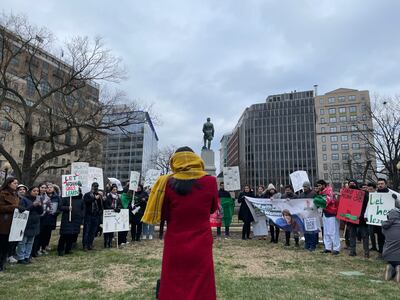
Afghan-American men said their shows of solidarity were important, too.
“It's never been a part of our culture to not let our women go to school, even for those who are religious, it's compulsory to get an education,” Yama Nadi, who helped to organise the Washington rally, told The National.
“Being here is the least we can do.”
Beloved Afghan singer Farhad Darya was among those to lend his voice to the chorus of demonstrators.
He spoke of resistance and life before the Taliban to a clearly captivated crowd.
The Washington protesters voiced their regret over the US's hasty withdrawal from the country after 20 years of war.
President Joe Biden made the decision to end America's longest war in the summer of 2021, leading to the Taliban takeover of Kabul, the ensuing chaos at the capital's airport and an ISIS attack nearby that killed 13 US troops and scores of Afghans.
Washington also recently failed to pass the Afghan Adjustment Act, which aimed to allow evacuees from that chaos to apply for permanent legal status if they submitted to background checks.
“As an Afghan-American, I feel betrayed,” Ms Popal said.
The Act “was crucial for many of the refugees that are here today … it's difficult being this close to the White House and seeing that they don't care,” she said.
Worldwide, demonstrators ranged from families with young children in Sydney, Australia to students in Bishkek, Kyrgyzstan, holding signs demanding “Let Afghan Girls Learn”.
That message was proclaimed across all participating cities.
“Education is not a privilege, it is a basic human right,” said one young protester in Cologne, Germany in front of an Afghan flag flying high.
“Millions of Afghan girls and women are worried for the future … we need support of the international community in our struggle to get equal rights and education for all Afghan girls and women.”
For some protesters, the demonstrations sent a message for women's rights beyond Afghanistan as well.
“We have a responsibility for the women of Afghanistan, and those women who are facing violence and their rights being violated across the globe,” Washington protester Zahra Wakilzada told The National.
“We show up for one woman, we show up for every woman around the world.”
On Friday, the United Nations Security Council called on the Taliban to reverse all oppressive measures against women and girls, including its restriction on women aid workers.
